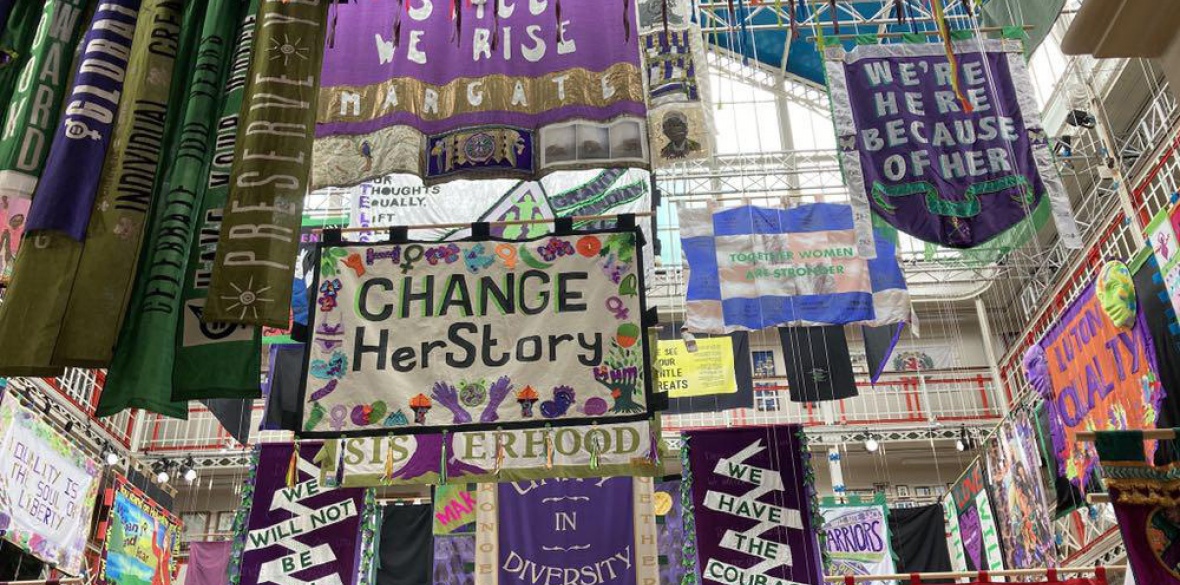This is the last article you can read this month
You can read more article this month
You can read more articles this month
Sorry your limit is up for this month
Reset on:
Please help support the Morning Star by subscribing here
I WAS a latecomer to feminism. Socialism, yes, environmentalism, yes, but as a trade union activist well used to working with the shoutiest of our men, it never occurred to me to worry too much about the state of women’s rights until, as a Labour Party CLP officer, I looked into a dispute around which complaints of bullying and abuse had come up, made a rookie comment about sex and gender, and got my head bitten off.
That was around four years ago, now. While trying to digest the idea that there was not merely a challenge to women’s legal rights, but a worldwide challenge to women’s right to talk about their rights (attempts to oust a female professor at Sussex University last week were the latest British instalment), I began to reassess my views about women’s position in politics and society.
How could it be that, when women were being murdered by men at the rate of two or more a week and, with disproportionately insecure, low-paid jobs, were bearing the brunt of austerity, so many women were willing to put up with sex-based laws being changed over their heads?
In fact, some were passionately defending their loss of rights on the assumption that their dissolution was helpful for another group of people.
Investigating this strange situation, and looking for different women’s views, I came across FiLiA, and went along to their 2018 conference, which was in Salford that year. It was a life-changing experience.
FiLiA empower and inspire because they blend discussions of international and local issues, bringing women from all over the world to talk about political and social movements and ideas, while foregrounding local women’s endeavours in the town hosting the conference.
In Salford, I learned about anti-sex-trafficking actions by women from South American countries, made jaw-dropping discoveries about how and why women end up in prison, saw artwork and textiles by women from all over the world, and ate lunches prepared by a women’s catering enterprise from Salford.
My favourite discovery that year was WAST Manchester — Women Asylum-Seekers Together — which is a group of women who, having made “the journey” unaccompanied, often in a desperate bid to escape male violence at home, seek out and look after other lone arrivals in their adopted towns.
They also do joyous, song-and-dance-and-drama performances, the ultimate in musical fusion, put together as they are by refugees from many nations and cultures.
Armed with my new knowledge of the courage and variety of women’s projects around the world, I got home and found myself “too feminist” to put up with the situation in my local Labour Party.
I realised ham-fisted responses to the sex-based rights issue were significantly adding to the forces hampering our drive for a genuinely socialist Labour government, so I set about trying to get a discussion going. It put me increasingly at odds with my local party and the national left groups I worked with.
It was a worry, but I wasn’t personally isolated — I was busy helping the women’s groups arising all over the country and by the next year, when FiLiA was in Bradford, I dived in with a more knowledge-based enthusiasm for feminism, to learn about the work of Nordic Model Now, of Rojava women, Palestinian women’s liberation groups and much more.
I listened to a discussion about war by a panel that included a woman from Washington who used to work for Barack Obama and a woman from an African country that had been bombed by Obama.
I now heartily agree with Julie Bindel that “we don’t want half the seats at the table, we want to break the table.”
There is no doubt that the first decades of the 21st century have been terrible for women, with ever-growing tides of pornography, violence and displacement making life impossible for many across the world.
Here in Britain, both the Green Party and the Labour Party have reached such depths of misogyny that they have trouble even uttering the word “woman” and will angrily tell you it’s an equalities issue, so women need to shut up and move over for supposedly more oppressed groups.
This is so wrong-headed, so ignorant of the fact that support for any and every marginalised group is generally demanded — and provided — by women.
We have lost a five-year struggle to get the Labour Party to see reason on women’s rights before the Tories did, and that’s sad because it will lose them votes, but maybe that’s how they will finally learn that “women’s issues” matter.
Women will do without party politics if they have to. What they won’t do is sit down and be quiet.
The fact that so many political activists so easily read “radical feminist” as “bigot” is, for those with the eyes to see, evidence of the rampant misogyny in politics. But every extreme force carries the seed of its opposite.
The abuse of women, and attempts to sideline women’s issues, have provoked an enormous national awakening.
As women gradually get their heads round the realities of rape and murder, of the plight of refugees, of having a police force they can’t trust, and schools that inculcate sexism more efficiently than they teach the realities of biological sex, women are coming together to push back.
To me, the annual FiLiA conference stands out as the symbol and the gathering place of this exuberant awakening.
Hundreds of thousands of women, pushed that bit too far, are coming out as red, green, or whatever colour, feminist and radical, regardless of what their political parties are doing, and over 1,000 of them are in Portsmouth for FiLiA 2021 this weekend.
For more information visit filia.org.uk.












